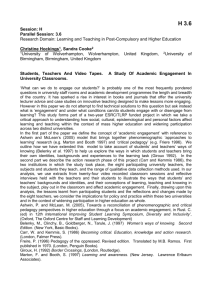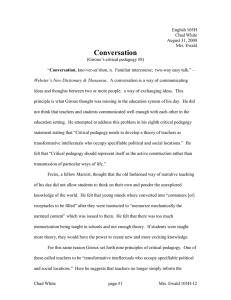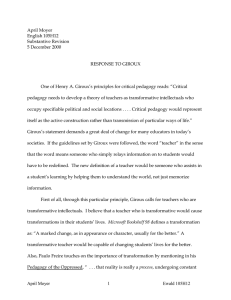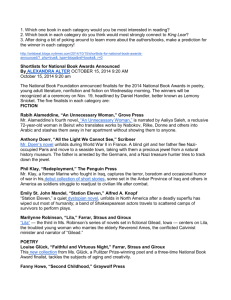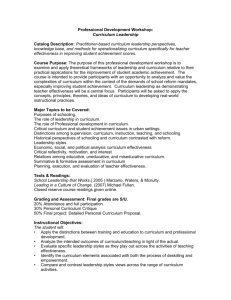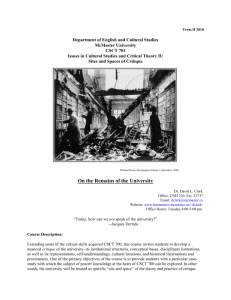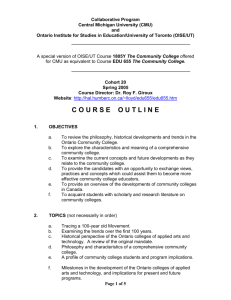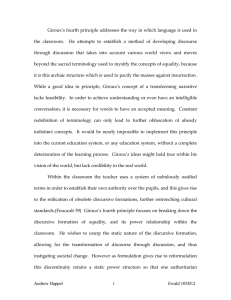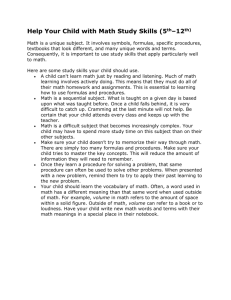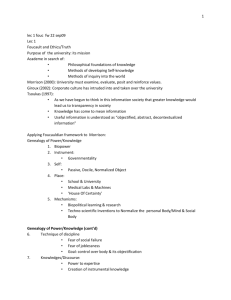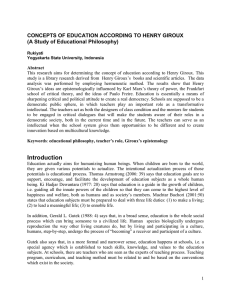Adam Kurschner English 105H Ewald
advertisement
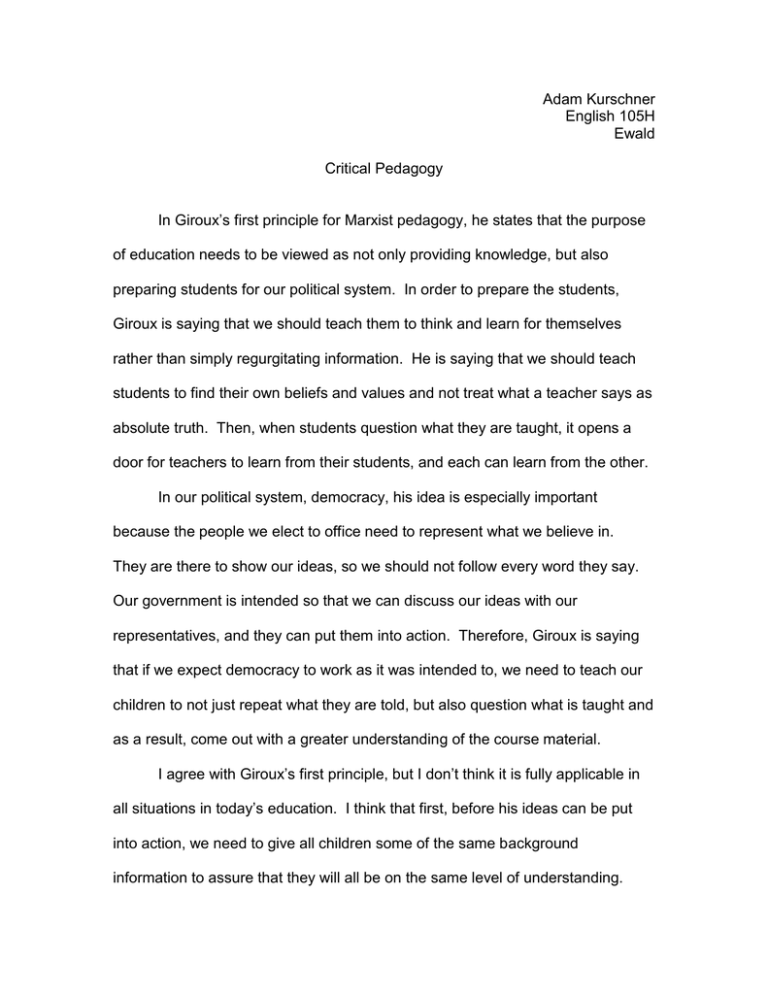
Adam Kurschner English 105H Ewald Critical Pedagogy In Giroux’s first principle for Marxist pedagogy, he states that the purpose of education needs to be viewed as not only providing knowledge, but also preparing students for our political system. In order to prepare the students, Giroux is saying that we should teach them to think and learn for themselves rather than simply regurgitating information. He is saying that we should teach students to find their own beliefs and values and not treat what a teacher says as absolute truth. Then, when students question what they are taught, it opens a door for teachers to learn from their students, and each can learn from the other. In our political system, democracy, his idea is especially important because the people we elect to office need to represent what we believe in. They are there to show our ideas, so we should not follow every word they say. Our government is intended so that we can discuss our ideas with our representatives, and they can put them into action. Therefore, Giroux is saying that if we expect democracy to work as it was intended to, we need to teach our children to not just repeat what they are told, but also question what is taught and as a result, come out with a greater understanding of the course material. I agree with Giroux’s first principle, but I don’t think it is fully applicable in all situations in today’s education. I think that first, before his ideas can be put into action, we need to give all children some of the same background information to assure that they will all be on the same level of understanding. This, therefore, could result in some of the banking concept of education and simply repeating information taught to them. I think this is necessary because we can’t expect children to learn everything that they need to know on their own. We should allow for them to learn from those who have gone before them so they can build on what others have discovered. Then, after the students have a base understanding of the subject, they should be allowed to search farther into the subject with the teacher being reduced to a role of simply directing the students and providing answers to their questions. Finally, the students should be free to learn on their own and make their own conclusions and opinions on what is being taught rather than just learning and repeating what their teacher says is the truth. If a class in my field of study, engineering, were to follow his rules for education, I would be eager to take it as soon as I could. Take a physics class for example, assuming all of the students had significant backgrounds in math and science, and were all on the same level of knowledge. Then, Giroux’s principles could be taken far, but not to the fullest extent. Students would be allowed to go out into the world, do experiments, take measurements and try and find out mathematical principles and formulas. In this class, the teacher would be there to focus the student’s ideas, answer any questions they had and to help them to direct their thoughts. Then, after the students have collected data and learned first hand about why things in nature work the way they do, they would be told the exact formulas and numbers that have been tested by experts in that field. I believe that this is the farthest Giroux’s principle could work in this type of class, and still be effective. This allows the students to learn on their own as much as they can, and teach them that they should try to learn things for themselves and develop their own beliefs. This also teaches them that they can always look to others for ideas, inspiration and different perspectives on what they are trying to discover, so that they are never alone in their learning. Overall, depending on the type of class, I think Giroux’s principles should be taken as far as they possibly can. This will create more of an interactive way of learning for student and at the same time will allow the teacher to learn from the students. Therefore, if we want to live in a society where our educational system sufficiently prepares our children for democracy and puts them in a situation where they will be allowed to learn more than they can under traditional teaching methods, we should follow Giroux as much as possible.

